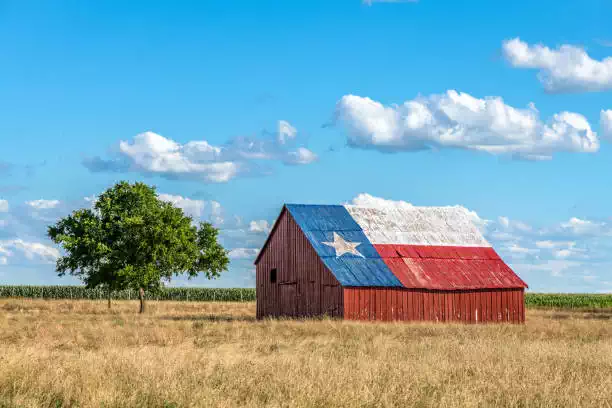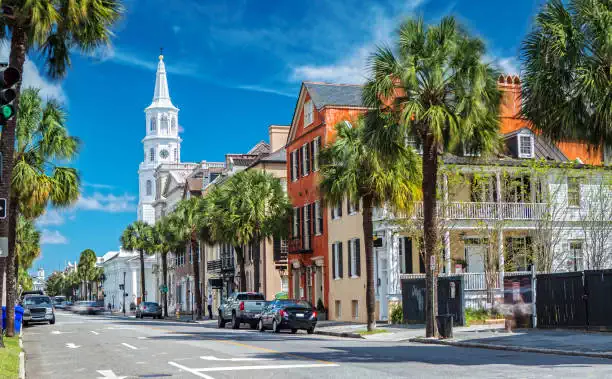Grants for Seniors in Illinois
Last Updated on April 18, 2024 by Rachel
Help for Seniors in Illinois – 27 Assistance Programs
Illinois is recognized as the “Land of Lincoln” since Abraham Lincoln lived in this state for a long time. This is one of the safest and senior-friendly places for the elderly. Particularly retirees do not have to pay taxes with regard to social security services, retirement income, and earnings in their retirement saving accounts. Illinois is more affordable than the U.S. average concerning the cost of living. However, some seniors may have challenging financial and health difficulties. They can benefit from the programs and services that are offered by the federal government, state government, and charity organizations.
State Resources for Seniors
The Illinois Department of Aging is the state’s agency in charge of senior and elderly citizens. The agency maintains a vast repository of available resources to meet any needs and answer all questions that seniors may have. Programs are available to offer various forms of assistance required to eligible seniors. In some cases, these programs are directly administered by the Department of Aging, while other programs may be supported by providing funding to charities that render assistance to seniors. To explore the various resources on aging provided by the department, visit https://www2.illinois.gov/aging/Pages/default.aspx.
Financial Assistance
Senior citizens over the age of 55 who are still able to work can apply for the Senior Community Service Employment Program (SCSE). The program is administered by the Department of Aging and is geared towards helping eligible senior residents find decent employment options so they can earn money to meet their needs. Participants receive job-related training to build skills and afterwards get assistance with finding suitable employment. More information on the workings of the program can be found at https://www2.illinois.gov/aging/programs/Pages/employ.aspx.
For seniors who are unable to work, help may come in the form of Supplemental Security Income (SSI). This is a program of the Social Security Administration that helps meet the basic financial needs of aged persons. Cash benefits are provided monthly to help meet the basic needs of food, clothing and shelter. The age eligibility for SSI benefits is 65 years. For further SSI benefits information, visit https://www.ssa.gov/ssi/.
The HCBS Waiver for Supportive Living Facilities is an establishment that provides cash assistance for seniors living in nursing homes or residential care units. Qualified candidates can get paid for their caregivers, medicine expenses, and surgeries.
Eligibility Requirements
- You must be between the ages of 22 and 64 or you must be 65 years of age or older.
- You must be a citizen of America or legally resident.
- You must be a resident of Illinois.
- You must not be enrolled in other HCBS waiver programs.
- You must show that you are in financial difficulty.
To see more information, follow the link https://www.illinois.gov/hfs/MedicalClients/HCBS/Pages/slf.aspx.
Ameren is a local company that presents cash assistance for low-income families. Its main criterion is the financial situation of the applicant. Your poverty level must be at or over 400 percent of the federal poverty regulation. This company offers up to $600 financial assistance. To see your poverty level, go to Federal Poverty Level Calculator. To apply, please go to https://www.ameren.com/illinois/account/customer-service/payment-options/payment-assistance or dial 800 755 5000.
Housing and Rent Assistance
The Supportive Living Program (SLP) is designed by the Illinois Department of Healthcare and Family Services to offer housing assistance for seniors who have a disease. People who are 65 years of age or older or anyone who has a physical disability between the ages of 22 and 64 are qualified for this program. The mission of these services is to improve the living conditions of seniors at home so that they will not have to move to any nursing facility. It provides accommodation units that have medical care, daily food, housekeeping, and security for seniors. See more information at https://www.illinois.gov/hfs/MedicalPrograms/slf/Pages/default.aspx.
Pathways to Community Living Program is financed by the state government under the Money Follows the Person Rebalancing Demonstration. This program is comprehensive since various state departments work on this together such as the Department on Aging, the Division of Rehabilitation Services, the Department of Human Services and Mental Health, and the Department of Housing Development Authority. This program is only for senior citizens in need. Some of their services are legal information about state law, Medicaid, and assisting home and community-based services at home. To see the referral form, please visit https://mfp.hfs.illinois.gov/mfpreferral.aspx.
The Illinois Housing Development Authority (IHDA) helps elderly residents of the state maintain their homes by offering assistance with repairs. Residents who meet the income and property value limits may receive grants through the Home Accessibility Program (HAP) to carry out repairs and modifications on their homes. An example of an accessibility modification covered by HAP is the construction of wheelchair ramps. While IHDA does not directly fund individuals, certain organizations are given the funds to disburse to eligible seniors. For a list of these organizations, visit https://www.ihda.org/my-community/revitalization-programs/.
Another way that assistance may be gotten for home repairs is through the federal Single Family Housing Repair Loans & Grants (Section 504 Home Repair) program. Eligible seniors can get a grant of up to $10,000 to carry out essential home repairs. The qualify for a grant, residents must be at least 62years old. Those under the age of 62 may qualify for a loan of up to $40,000. In the event that very extensive repairs are required, the loan and grant award amounts can be combined for a total of $50,000 of financial assistance. All funding provided must be used to repair or improve the home. More details on the program are available at https://www.rd.usda.gov/programs-services/single-family-housing-programs/single-family-housing-repair-loans-grants/il.
Visit Home Repair Grants for Seniors if you’re looking for financial support to fix, upgrade, or modernize your home.
Healthcare Assistance
Long Term Care is managed by the Illinois Department of Healthcare and Family Services (HFS) for seniors. The main goal of this care is to ensure that nursing home care of older citizens is covered by the state. People who cannot take care of themselves may apply for this benefit and can be settled at a nursing home that is recognized by the Illinois Department of Public Health. For more information, please visit https://www.illinois.gov/hfs/MedicalClients/Pages/ltc.aspx.
The Senior Health Insurance Program (SHIP) is funded by the statewide health insurance benefit for the ones who receive Medicare and can have caregivers at their homes. This program is run by the Illinois Department of Insurance specifically for the elderly. Seniors who seek to learn more information on their health or drug prescriptions can get in touch with this program. To learn more, please go to https://www2.illinois.gov/residents/family-home/AGE/ship or dial 800 252 8966.
Seniors in Illinois who are over the age of 65 can get healthcare services through the Medicare Program. This is a federal health insurance program that covers different services that seniors may require. Through the Medicare program, seniors can receive help with payment of hospitals stay costs, outpatient care, and prescription drugs, depending on the specific program selected. Spouses of seniors may also receive coverage if over the age of 62 years. For further details on the operation of the Medicare program in Illinois, seniors can visit https://www2.illinois.gov/cms/personnel/benefits/Pages/WhatisMedicare.aspx.
The Illinois Department of Healthcare and Family Services has a Medical Benefits Program tailored to meet the needs of low-income seniors who reside in the state. This is a comprehensive healthcare program that covers things like doctor visits, hospital care, emergency room stays, prescription drugs, long term care, etc. Applications are open to seniors over the age of 65 whose income and asset values meet the prescribed guidelines. For couples, the total value of countable assets should be less than $3,000 while for a single person it should be less than $2,000 to qualify for assistance. The value of property like the home, a car, personal belongings and some other special items are not considered as part of the asset valuation. Seniors who want to apply for the program can download an application form from https://www2.illinois.gov/hfs/SiteCollectionDocuments/hfs2378h.pdf and submit the filled form to any Family Community Resource Center (FCRC) nearby. A directory of FCRCs can be found at http://www.dhs.state.il.us/page.aspx?module=12. For additional information on things like income restrictions, visit https://www2.illinois.gov/hfs/MedicalClients/health/Pages/benefitsHFS.aspx.
The state also provides assistance by helping seniors fill out applications for healthcare programs. This can be taken advantage of by visiting and of the Senior Health Assistance Program (SHAP) offices around the state. Information on other available healthcare resources can also be gotten at these offices. A full list of the SHAP offices and their respective addresses can be found at https://www2.illinois.gov/aging/resources/documents/shap_list.pdf.
The Bridgeport Free Clinic provides medical care to uninsured residents in Chicago. Screening and checkups are carried out, along with treatment regimens to ensure recovery. The clinic also helps seniors apply for suitable insurance plans.
Help with Dental Care
SeniorDent is an organization that was founded to provide On-site Dental Care to residents of care facilities. As a dental care organization set up for seniors, SeniorDent provides a wide range of dental services and allows several payment options. Discount services are available to help low-income seniors get adequate care without exhausting their finances. Seniors who wish to find out more about SeniorDent can visit https://www.srdent.com/.
Seniors can also benefit from specially designed dental care insurance plans. These plans are offered at low cost and cover many of the dental services that seniors need to receive. Coverage ranges from 15% of the cost of procedures, to as high as 60% in some cases. The services usually covered include x-rays, root canals, cleaning, crowns, implants, dentures, etc. Discounted dentist visits are also offered by some of the dental plans. In a bid to reduce the financial burden on seniors, some of these dental plans cost as low as $105 per year, while still providing adequate coverage. Seniors can find an insurance policy that suits them by exploring the list of providers at https://medicarewire.com/dental-insurance/state/illinois/.
Dental Program is created by the state government to provide dental assistance for adults and children in need. Elder citizens who are registered to Medicaid can benefit from this free dental support. Those who cannot leave the home for dental needs can call the DentaQuest and receive treatment at home. Find out more information at https://govservices.dentaquest.com/ or make a call at 1 888 286 2447. Read Dental Grants in Illinois for more information on free and low-cost dental care and oral health services.
Seniors can also get care from Donated Dental Services. This is a network of volunteer dentists that offer free or low-cost dental care to seniors over the age of 65. Eligibility for the program is determined by income levels. Emergency services are not available due to the possibility of encountering waitlists. However, seniors who partake of the program receive comprehensive dental care. For more information, visit https://dentallifeline.org/illinois/.
Utility Bills Assistance
The Illinois Home Weatherization Assistance Program (IHWAP) is sponsored by the federal government to help low and moderate-income families. Older citizens are prioritized by this program. Eligible participants can have utility bill support and energy-efficient equipment at their homes. Some of their services are air sealing, wall establishment, and repair of all energy systems. The total income of the household and the size of the family is significant for the evaluation process. To learn more, go to https://www2.illinois.gov/dceo/CommunityServices/HomeWeatherization/Pages/default.aspx or call 217 785 2533.
The Illinois Low Income Home Energy Assistance Program (LIHEAP) is a federally funded utility assistance program for low and moderate-income individuals. Senior residents who are not able to pay their utility bills are qualified. The poverty level of the applicants must be at or under 200 percent of the federal poverty guidelines. This program provides discounts or monthly help on utility bills. To access the application form, click on https://www2.illinois.gov/dceo/CommunityServices/UtilityBillAssistance/Pages/HowtoApply.aspx or dial 1 877 411 9276.
The Low Income Home Energy Assistance Program (LIHEAP) can help seniors pay for their home energy bills. Eligible seniors receive credit assistance to offset all or most of their energy bills, especially those associated with heating during winter. Eligibility for LIHEAP aid is usually determined by income levels. Furthermore, assistance may be provided to pay for water and sewer bills when the home of an elderly resident has been disconnected from the utilities or an outstanding payment(s) of $250 or more is owed. To get this assistance, seniors must apply for the Low Income Household Water Assistance (LIHWAP) as they complete their LIHEAP application. Details on how to apply for help can be found at https://www2.illinois.gov/dceo/CommunityServices/UtilityBillAssistance/Pages/HowtoApply.aspx.
- Housing Assistance for Seniors in South Carolina
- Stationary Bikes for Seniors
- Housing Assistance for Seniors in Alabama
- Grants for Seniors in Delaware
- Help for Seniors in Minnesota
- Walk-in Tubs and Showers for Seniors
- Sleeping Chairs for Seniors
- Non-slip Bath Mats for Seniors
- Healthy Aging – Getting Ready for Embracing Aging
- Senior Centers in Mississippi
Additionally, heating assistance may be gotten through the Share the Warmth program. A credit of up to $200 can be applied to past due gas bills for customers of Peoples Gas.
Seniors in Chicago may also qualify for the Utility Billing Relief program. This program gives a 50% discount on water and sewer bills. Debt forgiveness may also be secured for the utility account to clear off all arrears. Information on this program and others is available at https://www.cedaorg.net/find-services/gas-and-electric/.
Looking for more help with your household bills? More options can be found at Help With Bills.
Food Assistance
The Food Stamp Grant Program Illinois (SNAP) is also recognized as the Supplemental Nutrition Assistance Program run by the Illinois Department of Human Services. It provides healthy and nutritious food for low and moderate-income families who cannot afford it. Low-income seniors in Illinois can apply for the Supplemental Nutrition Assistance Program (SNAP). Eligible seniors receive a debit card known as the Illinois Link Card to which funds are loaded on a monthly basis. This card can be used to purchase approved food items from most grocery stores in the state. Seniors can visit https://www.dhs.state.il.us/page.aspx?item=30357 to see the income eligibility requirements to apply for SNAP in Illinois. Applications for SNAP can be done online at http://abe.illinois.gov/, or paper applications can be downloaded from https://www.dhs.state.il.us/page.aspx?item=86436.
Apart from SNAP, seniors in Illinois can apply for the Commodity Supplemental Food Program. The goal of this program is to improve the health of seniors over the age of 60 by supplementing their diets with nutritious food. Eligible seniors receive a food package every month that contains food like pasta, cheese, rice, meat, canned fruit and vegetables, cereal, etc. These items are provided with the intention of helping seniors meet their nutritional demands. Alongside the packages, nutrition education is provided to give beneficiaries an understanding of how the best utilize the items for a healthy diet. For more information, visit https://www.dhs.state.il.us/page.aspx?item=31874.
Seniors can apply for either home-delivered meals or group site meals. These are two components of the Elderly Nutrition Program in the state. The group site meals are served in a congregate setting with multiple senior citizens converging at a specified venue to receive food. For those who are unable to leave their homes, meals may be delivered to them at home. Deliveries are done by volunteers who also check on the welfare of the senior and report any potential problems observed. For further information on the Elderly Nutrition Program in Illinois, visit https://www2.illinois.gov/aging/programs/nutrition/Pages/nutrition.aspx.
The Salvation Army Emergency Assistance and Homelessness Prevention in Illinois aim to assist with food, rent, clothing, drug needs, transportation, loans, utilities, and housing support for low-income families. This international charity organization prioritizes older residents. It has various opportunities that can be used by seniors. Find out more information at https://centralusa.salvationarmy.org/usc/ or contact 1 800 728 7825.
More assistance programs help low-income seniors in preventing hunger and supplementing their nutritional needs. The list can be found at Food Programs for Seniors.
Transportation Assistance
Seniors in Illinois who receive Medicaid assistance can choose from several medical transportation providers in the state. Beneficiaries who want to take advantage of this assistance can call First Transit at 877-725-0569. First Transit is the organization in charge of managing all Medicaid transportation providers and will provide a list of available providers for the senior. Once arrangements with the transportation provider have been finalized, First Transit should be called again for trip approval. For more details on how this operates, visit https://www.netspap.com/patients-participants/provider-locator.
There are other transportation providers sponsored by the Department of Aging. Programs have been put in place to help seniors get transport assistance to enable them access medical care, go shopping, visit senior centers, etc. A list of the transportation providers can be found at https://www.dhs.state.il.us/page.aspx?item=35567. Phone numbers are provided so that seniors can conveniently call to request services.
Seniors in the Chicago area can take advantage of the Chicago Department of Family & Support Service’s Transportation program. This program is offered as a joint effort with Chicago Transit Authority’s (CTA) Taxi Access Program (TAP) to provide specialized transportation assistance for eligible seniors. Door-to-door transportation is provided at reduced rates, allowing seniors to get groceries, go to medical appointments, visit friends, etc. and avoid isolation. Emergency transportation services are also available for seniors in life-threatening situations who have no other means of getting to a suitable medical facility. More information on the transportation assistance programs in Chicago can be found at https://www.chicago.gov/city/en/progs/trnsprt.html.
Residents of Illinois may qualify for the Seniors Ride Free Transit Benefit. This is a program open to seniors aged 65 years and older that allows them to ride on fixed-route transit systems for free. Application approval is subject to applicants meeting income eligibility guidelines which can be found at https://www2.illinois.gov/aging/BenefitsAccess/Documents/BAA-Flyer.pdf. Only online applications are accepted for this program, and the process can be started by visiting https://webapps.illinois.gov/AGE/BAA/BaaStart.aspx.
Charities and Organizations
The Little Brothers Friends of the Elderly (LBFE) is a charity organization that serves the needs of seniors in the state. Through a variety of programs, assistance is provided to many elderly residents. Visiting programs are organized to check on the welfare of older citizens. LBFE also offers the Food Bag program which delivers staple food items and fresh groceries to seniors. Every bag is packed specially to meet the need of the person who will be receiving it, to ensure maximum nourishment. Emergency weather assistance is provided, connecting seniors with valuable resources to help them cool or heat up their homes as required. For seniors who cannot go out due to the weather, essential food items are delivered to help them stay healthy. Other programs available can be explored at https://lbfechicago.org/.
Catholic Charities is another organization that provides assistance to seniors in need. Emergency assistance is available to help meet the food and financial needs of community members. Catholic Charities also offers affordable housing to seniors who are 62 years and older. While occupying the housing units provided, seniors would still be responsible for carrying out tasks in their own unit. For seniors who require extra care, help could be sought from the Senior Supportive Housing program that is available. More programs and services offered by the Catholic Charities can be checked at https://www.catholiccharities.net/building-community-with-seniors/.
Housing Opportunities and Maintenance for the Elderly (HOME) is a Chicago-based charity organization that renders essential services to seniors in need. The Upkeep and Repair program helps seniors by providing affordable carpentry, electrical and plumbing repairs to their homes. This allows them to continue to occupy their own homes, rather than move to care facilities. A free shopping bus is also available to help seniors go to nearby stores and pharmacies to purchase food and supplies. The bus is wheelchair accessible, allowing those with reduced mobility to use the service. The drivers help care the purchased items into the home of seniors upon return. Doing so ensures that seniors select food items based on nutritional value, not weight. Additional details on the activities of HOME can be found on their website https://homeseniors.org/.
Grants for Senior Veterans
Military veterans who reside in Illinois may qualify for admission into any of the Veterans’ Homes in the state. Veterans who are admitted into the homes receive medical care to meet their needs, balanced nutrition plans and meals to ensure that they remain healthy, etc. A monthly maintenance charge may be charged, based on the current income of the veteran seeking assistance. However, an inability to pay for the cost of care will not prevent a veteran from being admitted. These homes help provide a conducive environment for veteran aging while maintaining healthy living conditions and social life. The addresses of the various Illinois’ Veterans’ Homes, along with eligibility requirements can be found at https://www2.illinois.gov/veterans/services%20benefits/homes/Pages/Default.aspx.
Frequently Asked Questions (FAQs)
1. What financial assistance programs are available to seniors in Illinois? Seniors in Illinois can benefit from the Illinois Benefits Access Program, which includes the Senior Ride Free Transit Benefit and the Secretary of State License Plate Discount, the Low-Income Home Energy Assistance Program (LIHEAP), and the Supplemental Nutrition Assistance Program (SNAP) for help with living costs.
2. How can seniors apply for Medicaid in Illinois? Seniors can apply for Medicaid through the Illinois Department of Healthcare and Family Services (HFS) online at the ABE (Application for Benefits Eligibility) portal, by mail, or in person at a local office. Required documentation includes proof of age, income, residency, and assets.
3. What housing assistance is available for seniors in Illinois? The Illinois Housing Development Authority (IHDA) offers affordable housing options and the Section 8 Housing Choice Voucher Program for low-income seniors. Additionally, the IHDA provides information on senior housing developments and assisted living facilities.
4. Can seniors receive assistance with utility bills in Illinois? Yes, the Low-Income Home Energy Assistance Program (LIHEAP) in Illinois provides financial assistance to eligible senior households to help manage the cost of heating and cooling their homes.
5. How do seniors in Illinois get help with prescription medications? The Illinois Department on Aging offers the Senior Citizens Prescription Drug Discount Program, which helps seniors reduce the cost of medications. Illinois also participates in the Medicare Part D Extra Help program.
6. Are there property tax benefits for seniors in Illinois? The Illinois Senior Citizens Homestead Exemption provides a reduction in property taxes for seniors’ primary residences. Additionally, the Senior Citizens Assessment Freeze Homestead Exemption allows qualifying seniors to freeze the assessed value of their property.
7. What in-home care services are available to seniors in Illinois? The Illinois Department on Aging’s Community Care Program offers in-home and community-based services, including personal care, adult day services, and emergency home response systems, to help seniors live independently.
8. How can seniors access transportation services in Illinois? The Regional Transportation Authority (RTA) provides the Seniors Ride Free Transit Benefit, allowing seniors to use public transportation services at no cost. Local Area Agencies on Aging may also offer transportation services for medical appointments and shopping.
9. What nutritional programs are offered to seniors in Illinois? The Illinois Department on Aging supports the Senior Nutrition Program, providing congregate and home-delivered meals to seniors, aiming to improve nutrition and reduce isolation.
10. How can seniors in Illinois access legal assistance? Legal assistance for seniors in Illinois is available through organizations like Illinois Legal Aid Online and local legal aid societies, offering support on issues such as healthcare, housing, and consumer rights.







